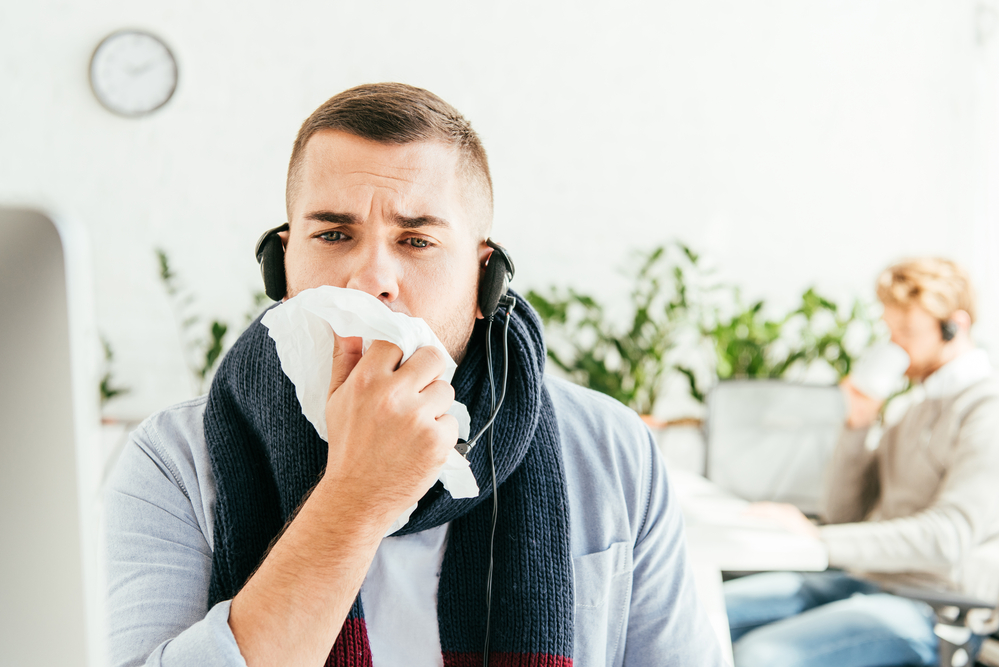Allergic rhinitis is often also called nasal allergy, pollinosis or hay fever, especially when it occurs during the haying season. Allergic rhinitis is the occurrence of several symptoms, usually in the eyes and in the nose, after exposure to particles that may be airborne like plant pollens, dander and most especially, dust.

An oversensitive immune system is usually cited for the occurrence of allergic rhinitis. Take note that the immune system is your shield against harmful and ailment-causing viruses and bacteria. In some people, immune systems react violently to substances or allergens that are not generally harmful or disease-causing. The most common and primary cause of allergic rhinitis is allergy to pollen. Pollens are very fine and powder-like substances produced by seed plants’ anthers. Allergic rhinitis can be similar to allergic reactions exhibited in some people by allergies to animal dander, inhaled allergens, mold and dust. Some of the plants that usually produce pollens that cause reported cases of allergic rhinitis are deciduous and evergreen trees, flowering plants, ragweed and grasses.
Identifying allergic rhinitis
The most common manifestations or symptoms of allergic rhinitis are:
o Nasal congestion or what you call stuffy nose
o Wheezing
o Sore throat
o Sneezing
o Teary eyes
o Runny nose
o Smell impairment
o Headache
o Coughing
o Itching in the mouth, throat, nose, eyes, skin or any other areas in the body
How to treat allergic rhinitis
Remember, most allergies are treatable but not curable. Allergic rhinitis is not an exception. Treatments or medications available or prescribed for allergic rhinitis only reduce symptoms of allergy caused by inflammation in the infected or affected tissues. Doctors advise that the best treatment would be prevention, but if you happen to already have it, several medications may be of help. Antihistamines are usually over-the-counter or do not require prescriptions when you buy them in drugstores. Such medicines, however, are only recommended to relieve mild symptoms or moderate symptoms. Take note that antihistamines may cause drowsiness and should not be taken when driving. There are antihistamines that are specifically described longer-acting. Included in this category are cetirizine and fexofenadine. These types of antihistamines will unlikely cause drowsiness. Nasal sprays are the most common form of medications taken for allergic rhinitis. They are safe and effective especially for patients whose symptoms are not reduced by antihistamines.
Decongestants are not exclusive for cough. They can also be used to treat allergic rhinitis. In taking medications, it is important to first seek a doctor’s recommendation and prescription even if some medicines are non-prescription to ensure health and safety. Proper administration and timing is also important. No one wants to get an overdose right?
Preventing allergic rhinitis
Prevention is better than treatment, as always. To prevent the onset of allergic rhinitis, people with history should try to remain indoors or inside air-conditioned rooms especially during the pollination or hay season. Remember that most pollinating trees produce and air-spread pollens during spring. In the case of flowers and grasses, they pollinate during summer and ragweeds produce pollen in early autumn.
Advertisement:
- One 72-spray bottle of Flonase Allergy Relief Nasal Spray, 24 Hour Non Drowsy Allergy Medicine, Metered Nasal Spray, stops your body from overreacting to allergens
- Containing the most prescribed allergy medication(2), Flonase relieves runny nose, sneezing, itchy nose and watery, itchy eyes, while also providing nasal congestion relief
- ACTIVE INGREDIENT: The active ingredient in Amazon Basic Care All Day Allergy is cetirizine hydrochloride, an antihistamine approved for the treatment of both indoor and outdoor allergy symptoms Compare to the active ingredient of Zyrtec
- 24-HOUR ALLERGY RELIEF: Temporarily provides relief of symptoms due to hay fever or other upper respiratory allergies: runny nose, sneezing, itching of the nose or throat and itchy, watery eyes
- ABS: Nasal allergy relief device is backed by advanced technology and ABS materials, ensuring reliable and effective relief from nasal congestion and discomfort.
- Stable And Effective: Utilizing photobiomodulation, device stabilizes nasal tissues and promotes inner circulation, providing holistic assistance in alleviating a wide range of nasal allergy symptoms.
I get commissions for purchases made through links on this website. As an Amazon Associate I earn from qualifying purchases.



